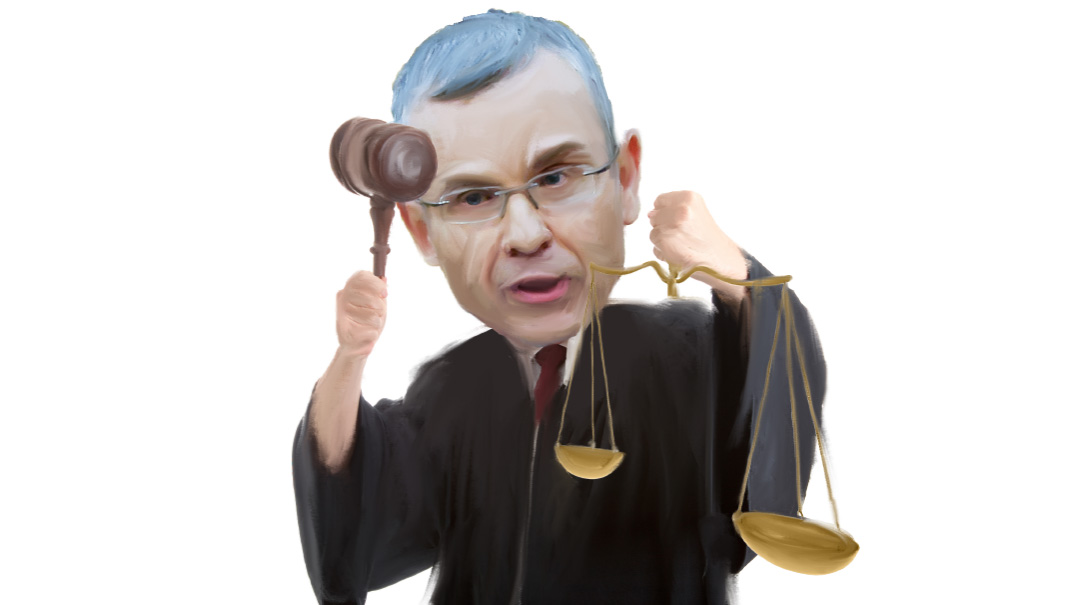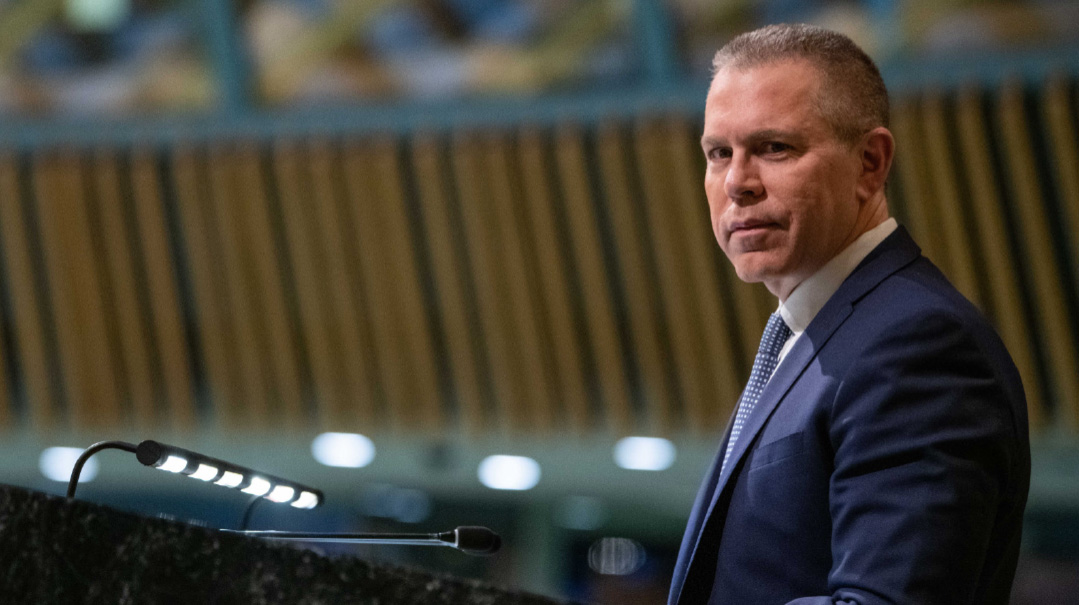Full Court Press

Justice Minister Yariv Levin is determined to cut Israel's High Court down to size

1
. New Israeli justice minister Yariv Levin’s one-man-show kicked off last Wednesday night at eight p.m. At his dramatic press conference, carefully timed to coincide with evening news shows, Levin announced the launch of a comprehensive overhaul of Israel’s legal system.
Incoming prime minister Binyamin Netanyahu, not known for passing by an opportunity to claim credit, was notably absent from the scene.
With all the flair of a bank clerk and the measured tone of a political science professor, Levin is a wolf in sheep’s clothing, his stodgy demeanor belying one of the sharpest minds in Israeli politics. Netanyahu’s staunchest loyalist and the architect of the change government’s collapse only one year into its term, Levin placed second (only to Netanyahu) in last summer’s Likud primaries after promising a judicial revolution to break the Israeli left’s stranglehold on the court system.
Despite once serving as deputy chairman of the Israeli Bar Association, Levin has been a fierce critic of Israeli courts for decades. He opened his remarks with a twist on one of Menachem Begin’s most memorable sayings: “Yesh shoftim b’Yerushalayim — there are judges in Jerusalem,” Levin echoed the iconic Likud leader, before adding in the same breath, “but there’s a legislature as well.”
When he was still a rank-and-file Likud MK, Levin once told me, “I won’t accept the justice portfolio as a bauble, but only if I’m given the powers to carry out substantive change.”
To get Levin to take the job, Netanyahu had to promise his confidant and party number two that he would get full credit for the judicial overhaul. And while in the past Netanyahu has always positioned himself as a defender of the High Court, this time he gave Levin his word that he wouldn’t throw a wrench in the works of judicial reform.
2
2. There is a well-known adage that the far-left Meretz party would win 90 percent of the justices’ votes, if a ballot box were set up in the High Court. Although the right has ruled the country with only brief breaks for the past 40 years, many feel that High Court rulings are intended to offset the Israeli public’s rightward lean.
Levin raised the flag of revolt. Two weeks before the government took office, before being offered the Justice Ministry, Levin was installed as Knesset Speaker. While Levin was appointed on an interim basis, a speaker who has won the confidence of the chamber can only be forced out by a supermajority of 90 MKs. When Netanyahu asked Levin to resign as speaker to assume the post of justice minister, the interim speaker conditioned his resignation on Netanyahu not putting obstacles in the way of judicial reform.
While he had no choice but to give Levin carte blanche, Netanyahu would have preferred to wait a little and carry out the revolution quietly, with broad consensus — as his attention is currently divided between the Knesset and his ongoing trial in the Jerusalem district court.
But Levin decided to storm ahead. The collateral damage was Netanyahu’s leading coalition partner, Aryeh Deri. The High Court was set to be hearing appeals on his appointment as minister the very next day, by an expanded panel of 11 judges.
Deri found himself in the crossfire of the earlier-than-expected judicial struggle when Attorney General Gali Baharav-Miara, who was disinvited from the government’s first meeting, gave her opinion on Deri’s appointment as a minister despite his conviction for tax offenses last year. Baharav-Miara labeled the appointment “unreasonable in the extreme” and called for Deri’s dismissal.
On the eve of the hearings, Deri tried to strike a conciliatory tone by stating that he trusted the court’s judgment. But then Levin came out with guns blazing. The High Court justices showed up for the hearings next morning after a sleepless night, and Deri found himself paying the full price of the premature hostilities.
3
3. Aryeh Deri has yet to face his fate, political and legal. As for Levin, he showed marked restraint, at least compared to other right-wing MKs who have called for taking D9 military bulldozers to the High Court building. But the five key layers of Levin’s reform will be perceived by the High Court as equally threatening to D9s in the building’s plaza.
Anyone hoping to navigate the bewildering maze of Israel’s legal and political system will have to learn some new terminology. Here’s a sneak peek:
• The Override Clause. This will allow an absolute Knesset majority (61 out of 120 MKs) to overrule the High Court.
• A High Court supermajority. The second provision will change the High Court majority required to overrule a Knesset vote from a simple majority of justices, as is currently the case, to a supermajority of 12 justices out of 15.
• Changing who chooses. Thirdly, the Judicial Selection Committee will be restructured to give the political element a majority on the committee. In addition, High Court justice nominees will have to undergo a hearing in the Knesset’s Constitution, Law, and Justice Committee, as happens in the US.
• Muzzling justices’ personal views. Fourth, ending the “reasonability” argument will limit the ability of justices to inject their personal views into a case.
• Reining in “legal advisors.” The fifth provision would make the legal advisors to government ministries currently appointed by the attorney general subject to political appointments instead.
Any one of these changes would tilt the balance between the judicial and the legislative-executive branch. The fact that Levin is advancing them all at one time shows that for him, this is not a limited operation, but all-out war.
There’s a long road ahead, but if Levin’s reforms become law, one could say that Begin's 1977 revolution has finally been completed, and the right wing has not only been elected, but has begun to rule.
(Originally featured in Mishpacha, Issue 944)
Oops! We could not locate your form.







